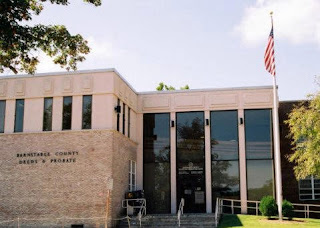In very general terms, probate is the process that determines who will inherit a deceased person’s property. * When one dies after having made a valid will, probate will pass the deceased person's property according to the terms of the will. When one dies without a will, probate will pass the property pursuant to the laws that identify who shall inherit in the absence of a will (these persons are referred to as “heirs”). In some instances a will may not address all of a deceased's property: in this event one dies both with and without a will. The entirety of the property subject to the probate process * is referred to as the probate estate.
The probate process is initiated by filing a petition--and several related documents--in the probate court. The petition will request that the court appoint a personal representative of the probate estate. After the petition is filed, the probate court will issue a citation. Among other things, the citation requires that notice of the filing of the petition be published in a local newspaper. After the initial matters are addressed, the court will appoint a personal representative.
Generally, the personal representative is charged with collecting the assets of the probate estate, paying proper creditor claims, and distributing what remains to those entitled. Creditors may make claims against an estate during the one-year period following the date of death. Usually assets are not distributed until after the period to make creditor claims has expired.
The role of the personal representative can be extensive. If real estate is to be sold or if the deceased was a party to litigation (or if the death gives rise to litigation) or if the deceased owned significant stock holdings, the personal representative may devote much attention to the role. Even sorting out a deceased person's effect can be laborious--as each item must be evaluated: unlike attending to our own affairs, where, for instance, we might discard an entire box or even boxes of items (believing the items to be no longer worthy of storing), a personal representative must inspect every item (and perhaps obtain values of obscure items).
As mentioned above, after all assets have been identified (and properly addressed) and all creditor claims have been paid, what remains may be distributed to those entitled to the property.
* Not all property requires probate: For instance, frequently jointly owned property will pass to surviving joint owner(s). Also, property with an effective beneficiary designation will pass to the named beneficiaries.

